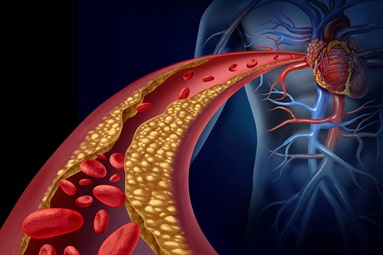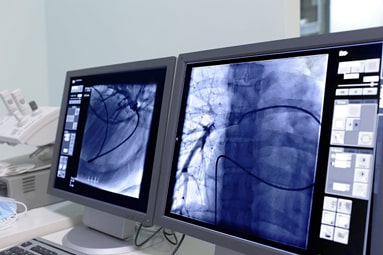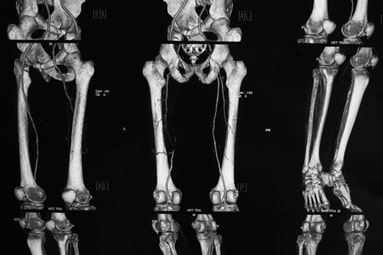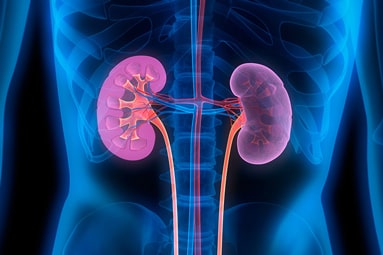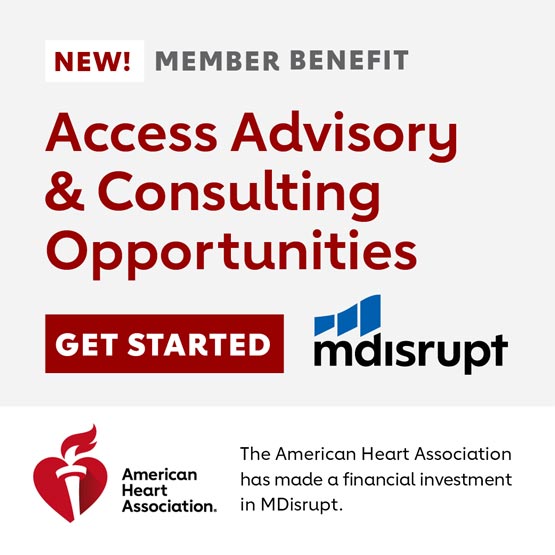Scientific Councils
AHA's Professional Members are an engaged group of cardiovascular and brain health professionals who participate in discovery and dissemination of science. We have 16 different scientific councils, each unique in their own way, that support and foster health science through the lens of professionals from an array of specialties and classifications.
You are more than a Member, you are a partner in support of our mission by being a relentless force for a world of longer, healthier lives and we appreciate your outstanding gifts of time, dedication and heart. Through your AHA Professional Membership, you are able to affiliate and interact with one or more of these scientific councils that match your specialty or classification.
The ATVB Council focuses on arteriosclerosis, thrombosis and vascular biology. The council advances research, addresses prevention, improves diagnosis and treatment, and works actively with other organizations. It shares reliable information through its annual conference, awards and lectures, and in the AHA’s journal, Arteriosclerosis, Thrombosis, and Vascular Biology.
Since 1999, the BCVS Council has advanced understanding of mechanisms of basic cardiovascular regulation to support insights into cardiovascular disease and facilitate new therapies. Emphasis is on integrating molecular/cellular and physiological approaches to address problems relating to genomics, cell signaling, myocardial biology, circulatory physiology, pathophysiology, and peripheral vascular disease.
The 3CPR Council’s areas of focus encompass integrated cardiopulmonary physiology, critical care, emergency cardiovascular care, and CPR. The council takes a bench-to-bedside and community approach to clinical care, research, and basic science. Pulmonary hypertension and regulation of pulmonary circulation have been topics of ongoing attention.
The CVSN Council accelerates the discovery, interpretation, and application of science to enhance cardiovascular health and treat cardiovascular diseases and stroke. The council helps develop scientific statements and advisories, guide professional education activities, provide scientific expertise, conduct research, translate findings, and promote evidence-based practices in clinical settings.
The CVRI Council’s mission is to provide leadership to the AHA to reduce death and disability from cardiovascular, peripheral vascular, and cerebrovascular diseases, using diagnostic and functional imaging and imaging-directed interventions. Council members work to provide outstanding research, education, outreach, and mentorship opportunities.
The CVSA Council includes surgeons, anesthesiologists and scientists interested in cardiac, vascular, and thoracic interventions. Involved in basic science and clinical trials, the council seeks to increase awareness of important issues in cardiovascular surgery and anesthesia, disseminate new knowledge, and encourage use of optimal surgical procedures and anesthetic techniques.
The CLCD Council supports AHA objectives in clinical cardiology, promotes excellent clinical care, and fosters professional development and education for clinical cardiologists. Through council-sponsored symposia, panels, and scientific conferences, members can access and interpret new developments in the field and promote clinical cardiology to professional and lay audiences.
The EPI Council focuses on population-based approaches to preventing cardiovascular diseases. The council’s mission is to lead the discovery and translation of science related to the distribution and determinants of cardiovascular disease with an emphasis on population approaches to prevent cardiovascular disease and improve cardiovascular health.
The GPM Council seeks to advance discovery and translation of biological insights from genetics and omics technologies to improve cardiovascular and brain health through better risk prediction, treatment and prevention for patients. Our expertise spans genetics, genomics, genomic medicine, epigenetics, transcriptomics, metabolomics, proteomics, microbiome, bioinformatics, computational science, and population health.
The Hypertension Council fosters excellence in hypertension research and education in support of the AHA’s mission. Hypertension remains a world-wide public-health challenge and is a leading cause of stroke, heart disease, and the progression of chronic kidney disease. The annual Hypertension Scientific Sessions showcases timely research.
Through active engagement and participation at local and national levels, Young Hearts Council members help shape public policy and clinical standards. Members are encouraged to remain active advocates — political, scientific and organizational — to promote the well-being of infants, children, adolescents, and young adults with congenital and acquired heart disease.
The Council on Lifestyle and Cardiometabolic Health promotes the expansion and exchange of knowledge with the ultimate goal of improving cardiovascular health across the lifespan. The council nurtures basic, clinical, epidemiological, and translational science related to nutrition, lipids, obesity, diabetes, physical activity, and behavioral change.
PVD Council members are focused on improving the care of patients with vascular diseases by advancing science, education, advocacy, and improved healthcare delivery. Members support the AHA mission through active involvement in the council’s scientific initiatives and educational programs, including the annual Scientific Sessions and Vascular Discovery meetings.
The QCOR Council provides a forum for a multidisciplinary group of volunteers committed to making a substantial contribution to reducing the burden of heart disease and stroke through improving healthcare quality and patient outcomes. Members gain insight on how to provide effective, safe, timely, equitable, efficient, and patient-centered care.
The KCVD Council works to reduce cardiovascular-related disability and death through research, communication, advocacy, and education about the kidney. Kidney disease is a major cause and consequence of cardiovascular disease. Chronic renal insufficiency can contribute to development of hypertension, vascular disease, atherosclerosis and other morbidity and mortality risk factors.
The Stroke Council is dedicated to advancing the science of stroke prevention, treatment and recovery through research and education. Members develop scientifically based publications, meetings, education, and training programs; they help translate stroke-related science into effective initiatives and products for the public, healthcare professionals, healthcare facilities and policymakers.
